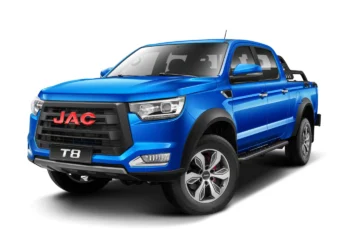One of the leading electric car company Tesla delivered a record number of cars in the second quarter – as its strategy to lower prices paid off and US consumers took advantage of tax credits.
The carmaker beat market expectations and delivered 466,140 cars in the three months to the end of June, up 83.5% on a year ago and an increase of 10.4% on the first three months of the year.
Tesla produced an even greater number of vehicles totalling 479,700 which exceeded its own ambitious targets of turning out an extra 50% of cars a year.
Analysts had expected the company headed by entrepreneur and Twitter owner Elon Musk, to deliver just 445,000 vehicles.
Meanwhile, the vast majority of sales were of the Model 3 and Model Y, which came down in price a number of times this year. Combined with US government subsidies, customers could own one of the models for roughly $33,000 (£26,021) when federal tax credits are applied.
Affordability had been identified by Mr Musk as a key factor that was limiting sales. Earlier this year, Tesla boss Elon Musk said he believed pursuing higher sales, with lower profits, is the right choice for the company. As a result, the cost of Tesla’s vehicles was brought down in January and March to keep the company competitive with rivals, as traditional carmakers continue to boost their electric vehicle production.
Production and Delivery Go Up
Production and delivery was also up in the first three months of the year, but had failed to reach the 50% increase in deliveries target.
“Tesla has made a strategic choice to be a volume manufacturer,” Bill Russo, the founder and chief executive of advisory firm Automobility.
“This was the main contributor to the sales increase, as its mainly higher-volume Model 3 and Model Y benefitted from the price war,” he added.
Contrary to Teslas in April, Tesla said it had no plans to stabilise the prices of its vehicles, even though repeated price cuts had dented profits.
“We’re not ‘starting a price war’, we’re just lowering prices to enable affordability at scale,” Mr Musk wrote on his social media platform, Twitter.
At the time Tesla said that its overall revenue had risen by almost a quarter in the first quarter from a year ago, as car sales increased.
However, its profit for the same period dropped by 24%, because of price cuts and higher costs of raw materials and other commodities.
Tesla had struggled with supply chain issues which hampered its ability to get cars to customers late last year. In the final three months of 2022 it delivered 55,760 fewer vehicles than it produced due to logistical problems and slowing demand, fuelled by rising interest rates and recession fears.
Over the weekend, Beijing based Li-Auto said its deliveries had hit an all-time high of 32,575 in June, marking its third consecutive monthly sales record.
Meanwhile, deliveries by Shanghai-based Nio and Guangzhou-based Xpeng jumped to 10,707 and 8,620 respectively during the month.
The share price rallied 142% across the first six months of 2023 – and has meant Mr Musk is once again the world’s richest man after being knocked off the top spot in December.
READ ALSO: PTSD Destroying Youth In England And Wale, Research Reveals





















